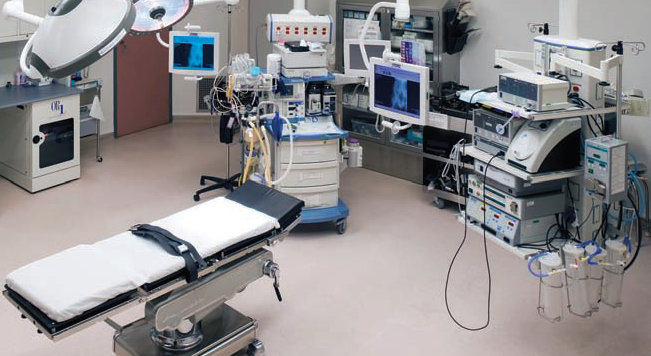H. pylori
WHAT IS HELICOBACTER PYLORI (H.PYLORI)? – This bacterium infects the lining of the stomach and thrives in the mucous environment. It is common worldwide and especially impacts the elderly, the very round, and those in Third World countries where sanitation is problematic. However, just because you have been exposed to H. pylori doesn’t necessarily mean you will be affected by its presence. Often H. pylori does not cause any symptoms. Approximately 50 percent of people in the United States have it.
HOW IS H.PYLORI INFECTION DIAGNOSED? – Your physician can use a blood test, a breath test, or an endoscopy.
Blood Test – Your physician sends a sample of your blood to a lab to confirm if you have H. pylori.
Breath Test – In this test you drink a special liquid, and in less than an hour, a sample of your breath is tested for a chemical reaction caused by H. pylori.
Endoscopy – A small tube with a camera inside is inserted through the mouth or nose, passing into the stomach to look for inflammation and ulcers. During the procedure, a biopsy, or small sample of the stomach lining, can be obtained. This biopsy will be examined under a microscope by a surgical pathologist, preferably one specializing in gastrointestinal pathology, and a diagnosis of H. pylori infection or other unexpected abnormality can be established or excluded.
WHAT ARE THE RISKS OF HAVING H.PYLORI? – For many years, physicians thought ulcers in the upper gastrointestinal tract were related to stress, ‘Type A’ personality, and non-steroidal anti-inflammatory class of medicines that include aspirin and other over-the-counter pain relievers commonly used for arthritis and other conditions. Recently researchers have discovered that H. pylori is actually the cause for many, if not most ulcers. An ulcer is a defect in the lining of an organ, in this case, the stomach or duodenum (the first portion of the small intestine). The most common ulcer symptom is a burning pain in the abdomen. The pain often happens when the stomach is empty and may be relieved by eating food or taking antacids. Sometimes ulcers bleed. If the bleeding is heavy, blood may appear in vomit or bowel movements, which may appear dark red or black.
- pylori can also cause a painful inflammation of the stomach called gastritis. The symptoms of gastritis are upper-abdominal burning/pain, bloating, and discomfort. Long-term infection of the stomach with this bacterium may lead to chronic atrophic gastritis (inflammation and damage to the lining of the stomach), which in turn is a risk factor for pre-cancerous changes and cancer of the lining of the stomach. H. pylori infection is also associated with another type of stomach cancer involving white blood cells, called lymphoma despite these risks, the vast majority of people who carry this bacterium in their stomachs never develop cancer.
HOW AND WHEN IS H.PYLORI TREATED? – Recent studies suggest that treating H. pylori when ulcers are not present may actually worsen reflux disease. The H. pylori bacteria create a buffer zone around themselves that allows them to live in the highly acidic environment of the stomach. Medication given to eradicate H. pylori alone can interfere with that buffering base, causing patients to experience more reflux symptoms. If ulcers are present a regimen of antibiotics are given to kill the bacteria and allow the ulcer to heal. Treatment with antibiotics can actually cause regression of some of the lymphomas that occur in these patients.
Gastroenterologist Services
Click on one of the services below to learn more.
Patient Reviews
Our Locations
Bay Area Endoscopy and Surgery Center
5771 49th St North
St. Petersburg, FL 33709
Tel: (727) 528-2261
Florida Digestive Specialists
5651 49th Street
St. Petersburg, FL 33709
Tel: (727) 443-4299 Fax: (727) 443-0255
Our Hospitals
Northside Hospital
6000 49th Street North
St. Petersburg, FL 33709
Tel: (727) 521-5158
St. Petersburg General Hospital
6500 38th Ave North
St Petersburg, FL 33710
Tel: (727) 461-8057

